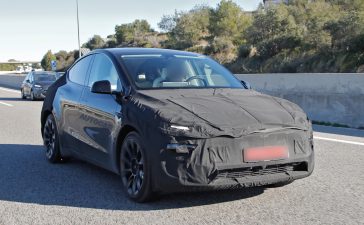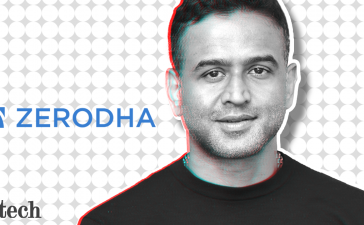Barry Diller’s career has been characterised by big jobs, big bets and big bucks.
During more than 50 years in the media and entertainment industry, he has risen from the mailroom of the William Morris talent agency to Hollywood’s top table. He ran Paramount Pictures as it released hits such as Saturday Night Fever, Raiders of the Lost Ark and Cheers. He gatecrashed the cosy club of US broadcasting when he launched the fourth national network (Fox) for Rupert Murdoch. He bought (and sold) the QVC shopping channel, ran the Universal movie studio and surfed the dotcom wave with IAC, where he assembled a portfolio of online brands, which has at various times included Expedia, Tinder and Match.com.
Forbes estimates his net worth is $4.6bn, allowing him luxuries such as a big boat (the Eos, one of the world’s largest yachts) as well as the funds to clone his late dog — a Jack Russell mix called Shannon — five times over.
It is a career of forward motion, so when Diller made a bid for Paramount this summer it was a surprise, not least because in recent years he has been downbeat about Hollywood and the structural challenges facing film and television.
“There’s always going to be a slice of my heart with Paramount written on it,” he says. “I thought I knew what to do with it.” We have just finished a discussion on stage at the FT’s Business of Entertainment conference in a West Hollywood hotel and are sitting in a suite with a view of Beverly Hills to the south and Hollywood to the east. His Paramount bid was motivated, he says, by “more of a duty than a desire because of the symmetry of my own life”.
Symmetry? “I was chief executive for 10 years and then in the 1990s came very close [to buying it].” Back then, he was beaten by a bid from the late Sumner Redstone. Diller signalled his defeat with a simple statement: “They won. We lost. Next.”
This time the 82-year-old withdrew after concluding he lacked the firepower to compete with rival bidder and eventual winner Skydance, owned by David Ellison, the son of Oracle founder Larry (estimated net worth: $215bn). “I never think it’s a good thing to be in an auction with someone with a vastly better balance sheet than you.”
The auction did little to change Diller’s view about the shift of power from Hollywood to Silicon Valley. Hollywood’s hold over worldwide entertainment has “gone. It is no more. Netflix, Amazon and Apple are really the controllers of the worldwide film and television business.”
Diller’s friend Murdoch thought the same thing seven years ago and cited the rise of Netflix as a reason for getting out of the film business when he sold his Fox studio to Walt Disney. Diller says their ascent has not necessarily been good for the quality of content being produced.
“I will believe forever that creatively the best organisation for making content — movies, television, whatever — is a linear and narrow one. Meaning that it is not part of a giant conglomerate. It does not have any other activity [going on] other than deciding: what is the idea, what is going to be made.”
As media companies have consolidated and tech companies have moved on to Tinsel Town turf, “you can’t even find the whites of the eyes of the person who makes the decision [about the content]”. The individual at the top of the organisation needs to be ultimately responsible for the creative output, he adds. “That is not something you can delegate. It should be your very being! The most senior person [at the company] should be on the line for the success or failure of their product.”
After watching Big Tech eat Hollywood’s lunch, the entertainment industry is bracing for further disruption from artificial intelligence. Diller’s emotional interest in Paramount aside, he admits to thinking “how easily everything that I’d been involved in could be disintermediated . . . by AI or different kinds of competition”. This led to a focus on sectors and businesses “that cannot be disintermediated”.
You can’t disintermediate a physical experience, which is why Diller and IAC are betting on Las Vegas. Over the past four years, they have built a 22 per cent stake in MGM Resorts, the gaming group that owns Las Vegas mega casinos including The Bellagio, Aria and Mandalay Bay.

MGM Resorts has nine properties in Las Vegas, equivalent to a roughly 40 per cent market share in the city. “The amount of entertainment, sports, live performance, in every possible variety and combination in Las Vegas, is unequalled anywhere in the world,” Diller marvels. “It can’t be duplicated.”
Owning casinos in Las Vegas requires a gaming licence and Diller’s full permit was belatedly approved in May. But his application was held up by a Securities and Exchange Commission investigation into insider trading of Activision Blizzard shares shortly before Microsoft’s $75bn bid for the video game group in January 2022. Diller, who knows Activision’s chief executive, Bobby Kotick, and Alexander von Furstenberg, the son of Diller’s fashion designer wife, Diane, had bought shares before the deal. They were investigated, as was David Geffen, a fellow media mogul and old friend.
Diller had described the purchase of Activision shares as a “lucky bet”. The SEC dropped its investigation this spring. He said at the time: “There was no insider trading and nobody acted on any insider information. The investigation proved that.”
Diller is a longtime supporter of Democratic candidates and has donated to Kamala Harris’s presidential campaign. However, he is no fan of the Federal Trade Commission chair Lina Khan, a Joe Biden appointee who has taken a more muscular approach to antitrust enforcement. This summer Diller told CNBC he would lobby Harris to ditch her if she wins the White House, saying Khan was against “almost anything” business wanted to do to grow.
He has harsher words for Harris’s opponent — and some of his richer supporters — in the presidential race. “I want Donald Trump pushed into the dustheap of history. What I’m surprised at is the plutocrats.” He checks himself. “Not all of them . . . I guess I could be called one. But a good many of them are saying they will vote for Trump because of his position on taxes and other things that will keep their dollars when they have more dollars than they would conceivably need.”
He mentions John Paulson, the hedge fund billionaire. “I heard him talk [about Trump] for 20 minutes and . . . he never talked about the character of the person. What he and others do is refuse to talk about the character of what is arguably a rotten person.”
Trump and Diller rose to prominence around the same time and were fixtures of the 1970s New York social scene. Diller and von Furstenberg used to go to the Studio 54 nightclub in Manhattan; Trump is known to have gone a few times too, although it is hard to imagine the three of them sharing the same dance floor.
When I last interviewed Diller almost a decade ago, he revealed he was in the club the infamous night Bianca Jagger “came in on a white horse”. Jagger wrote to the Financial Times in response to clarify that the horse had been brought into the building and she had “made the foolish decision to get on it for a few minutes”. She was photographed, the image “giving rise to the fable . . . that I arrived at Studio 54 on a white horse”.
I tell Diller about Jagger’s letter. “Then her recollection varies from mine,” he growls.
Did he ever run into Trump? “I met him when I was in my thirties at Paramount and he was an up-and-coming real estate guy. He invited me to lunch . . . I was a little bit intrigued by him.”
Lunch did not go well. Trump, he says, was one of those people you meet “and all they tell you is how great you are”. The compliments were “without foundation” to the extent it was “almost an insult. I remember going to the elevator and as the door closed thinking: I never want to see this person again in my life.”
He occasionally ran into Trump over the decades that followed. “If I would be in the same environment as him, it was my mission to never speak to him. He is sensitive to rejection so he would take public mean shots at me just because it was clear I did not like him.”
Add a big brush off to the big jobs and big bets: “It is 45 years now since my first encounter [and] I have never spoken to him since. So I have a badge.”












